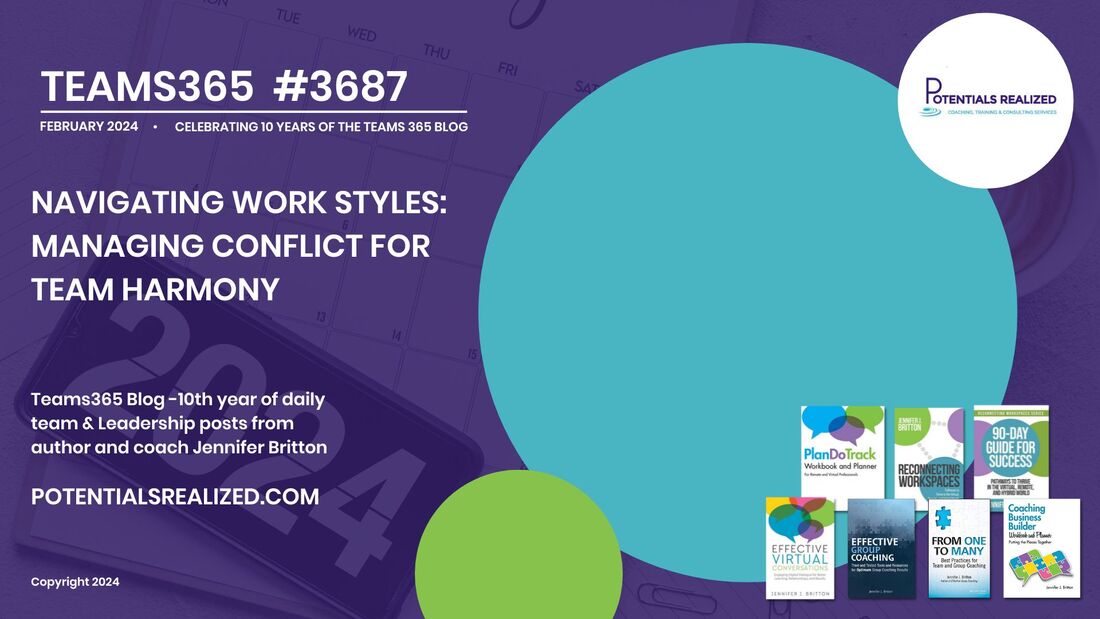1. **Recognizing Work Style Differences**: The first step in managing conflict related to work styles is recognizing and understanding the differences among team members. People have varying preferences for communication, decision-making, and task execution. Some may prefer a direct and assertive approach, while others may value collaboration and consensus-building. By acknowledging these differences, teams can proactively address potential areas of conflict.
2. **Communication is Key**: Effective communication is essential in resolving conflicts stemming from work style differences. Encourage open dialogue where team members feel comfortable expressing their perspectives and concerns. Foster active listening to ensure that all voices are heard and understood. Additionally, clarify expectations and establish clear channels for feedback to prevent misunderstandings and miscommunications.
3. **Flexibility and Adaptability**: Flexibility is crucial in accommodating different work styles and preferences. Recognize that there is no one-size-fits-all approach to work. Encourage team members to be adaptable and willing to compromise when necessary. Flexibility allows individuals to leverage their strengths while also respecting the preferences of their colleagues, ultimately leading to more collaborative and effective teamwork.
4. **Seeking Common Ground**: Despite differences in work styles, there are often common goals that unite team members. Emphasize the shared objectives and values that bring the team together. By focusing on common ground, teams can transcend individual differences and work towards collective success. Encourage collaboration and brainstorming to find creative solutions that accommodate diverse perspectives.
5. **Conflict Resolution Strategies**: When conflicts arise, it's essential to address them promptly and constructively. Implement conflict resolution strategies such as mediation, negotiation, or facilitated discussions. Encourage empathy and understanding among team members, helping them to see the situation from multiple perspectives. By fostering a collaborative approach to conflict resolution, teams can transform tensions into opportunities for growth and learning.
In conclusion, conflict stemming from work style differences is a natural part of any workplace environment. However, by recognizing differences, promoting effective communication, fostering flexibility, seeking common ground, and implementing conflict resolution strategies, teams can navigate conflicts constructively and foster a more harmonious and productive work environment. Embracing diversity and leveraging the unique strengths of each team member ultimately leads to stronger teamwork and organizational success.
CEO, Head Coach and Author
Potentials Realized | Group Coaching Essentials
Leadership | Teamwork | Coaching
Contact: 1-416-996-8326
Email: [email protected]
Instagram:@ReconnectingWorkspaces @CoachingBusinessBuilder
Pick up a copy of Reconnecting Workspaces: Pathways to Thrive in the Virtual, Remote and Hybrid World at Amazon – https://bit.ly/reconnectingworkspaces.
Check out my latest TEDx talk – Coaching Teams Through Chaos at https://www.ted.com/talks/jennifer_britton_coaching_teams_through_chaos
Set up a call with myself or my team to learn more about how we can support you through our award-winning ICF CCE approved Coach Training programs – https://calendly.com/potentials-realized/group-coaching-essentials

 RSS Feed
RSS Feed





